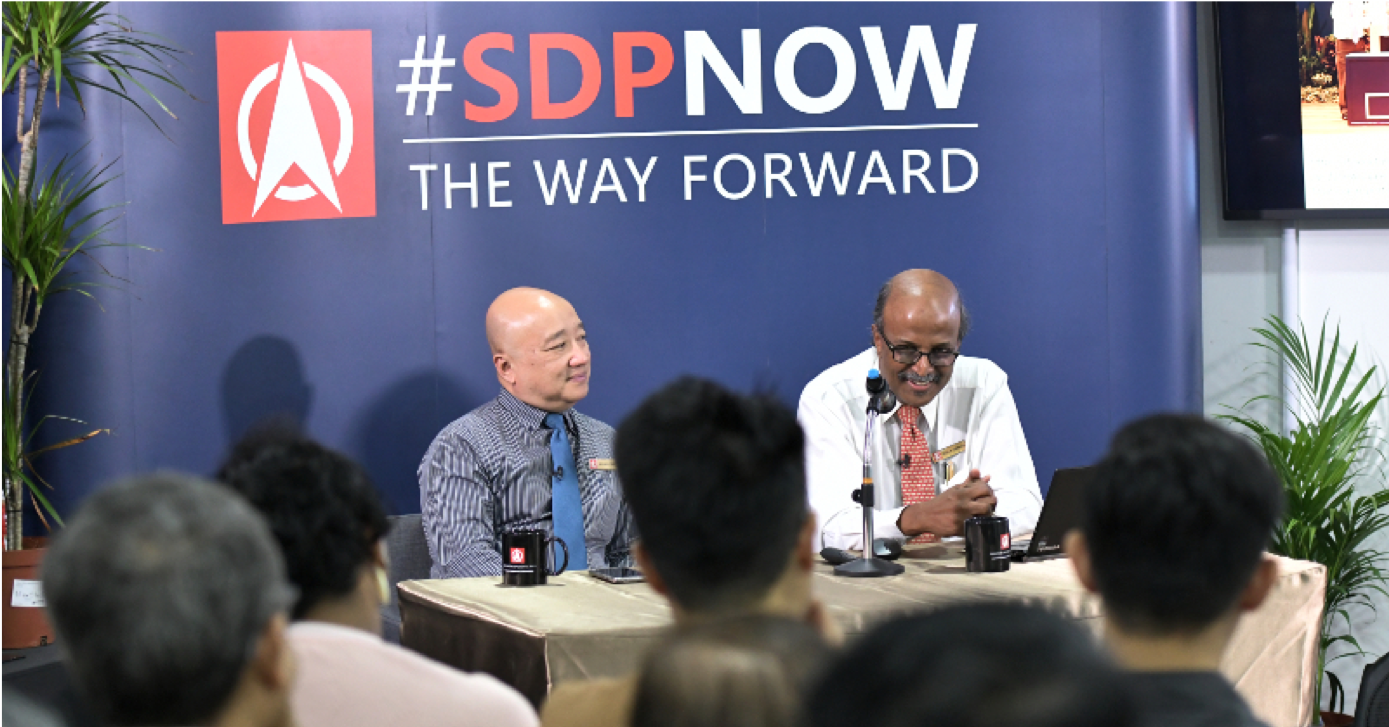The Singapore Democratic Party (SDP) has released its education policy proposal paper on July 13, 2019, as it gears up for the upcoming General Election due by April 2021.
The hefty 105-page policy paper consists of seven chapters, and serves as part-flex and part-dare, as it demonstrates the policy-proposing chops of the party and its leadership.
It is part of an ongoing series of policy proposals put forth by the party since March 2019.
The document is recommending changes at every education level from early childhood to tertiary, as the opposition political party is proposing a near-overhaul of the current national system.
The policy paper launch was presented by SDP chairman Paul Tambyah, as well as Benjamin Pwee, former secretary-general of the Democratic Progressive Party, but who is now a SDP member.
Current education system can be improved
SDP said it believes the education system formulated by the current government, made up of the incumbent ruling People's Action Party, essentially needs to shift focus.
Some changes mooted include channelling education outcomes to meet the creative and innovation needs of a 21st-century economy, as well as redistributing resources that are supposedly disproportionately benefiting the elite, thereby worsening inequality.
How feasible and justified the proposals are is open for debate, praise and ridicule, as the paper is made available to the public for scrutiny.
Here are some of the changes the SDP mooted.
At the early childhood level
SDP said it will introduce state pre-schools run by the Ministry of Education, and have it made accessible to everyone, regardless of income level.
These pre-schools will not focus on academic learning, but shall be geared more towards exploration, motor skills and social development.
Early childhood educators will be trained to assess children not by their test scores, but via other observations.
To further aid childhood development, the SDP proposes setting up a National Centre for Maternal and Child Health to help support new parents.
Abolishing the PSLE
At the primary level, the SDP said it believes that streaming puts unnecessary labels on children, and that 12 years old is too young an age to assess a child's development.
Instead, it proposed abolishing the PSLE and delay the streaming system to the upper-secondary level.
Even though SDP acknowledged MOE's recent announcement to replace the old streaming system with subject-based banding, they still branded it a "cosmetic change" as the "only grades that matter" are the PSLE and O-level results.
Improvements at the primary level
For primary schools, the SDP proposed "reducing depth but increasing breadth" of the school syllabus.
More subjects will be introduced, such as arts and humanities, to provide a more well-rounded education.
A National Board of Curriculum Oversight (NBCO) shall be set up to review this.
Other proposed changes include reducing class sizes, providing school lunches, and lengthening school hours to a single session format.
Abolishing school ranking system
Highlighting how competition and ranking pervades the education system, the SDP further proposed reinstating the aptitude test at the end of Secondary 2 in lieu of streaming.
Aptitude tests, according to SDP, are "not an assessment of previously acquired knowledge" and one cannot study for an aptitude test to improve scores.
This method of assessment is an apparent throwback to a 1970s policy, and such a test can then determine a student's entry into the appropriate classes in Secondary 3.
The SDP also said it intends to abolish the school and class ranking system.
Instead, schools will be grouped in clusters according to geographic area, with every secondary school enjoying equal access to resources, facilities and quality teachers.
As the SDP is also proposing that the PSLE be abolished, the main consideration for student enrollment shall be the proximity of the school to where one lives.
Scrapping tuition grant scheme for foreign students at tertiary level
According to SDP's proposed changes, academics at the tertiary level will also be affected.
The SDP wants to "democratise university management" and amend the Education Act to prevent government interference in university matters.
It will also scrap the tuition grant scheme for foreign students -- worth S$210 million a year -- but remains confident of attracting "high-quality, fee-paying" foreign students.
The SDP will also abolish state scholarships and instead provide interest-free student loans for all Singaporean students.
And it will give universities "complete autonomy" to hire faculty members.
Special needs education
For students with special needs, the SDP proposes that the government should assume the responsibility for their education, instead of "outsourcing" them to voluntary welfare organisations.
It will amend the Education Act to ensure that special needs children will be enrolled and integrated into mainstream schools and kindergartens.
You can read the proposals in full here.
Related stories:
If you like what you read, follow us on Facebook, Instagram, Twitter and Telegram to get the latest updates.
